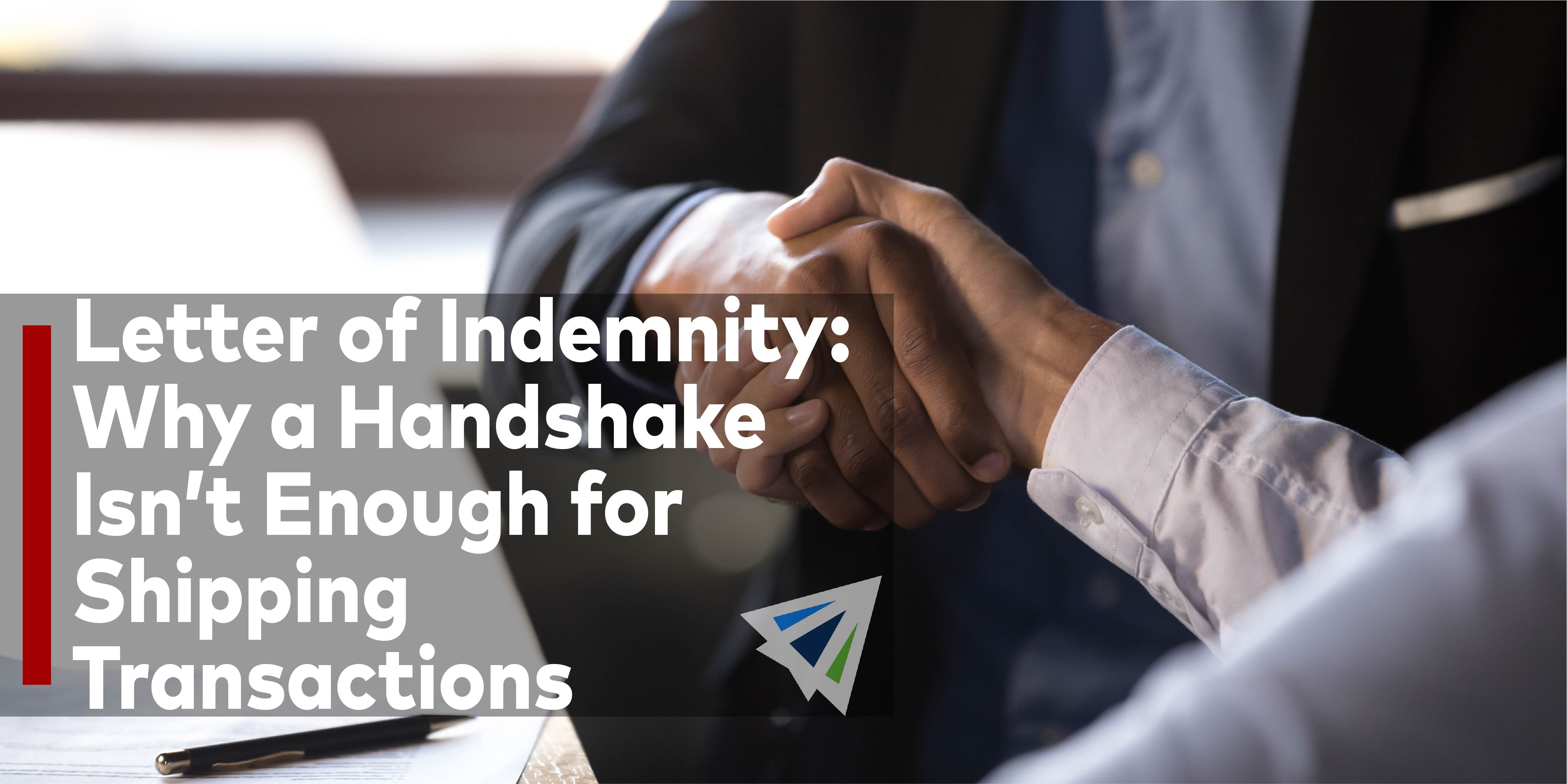The international shipping industry really relies on conversations. If you’ve ever dealt with an international shipping transactions, you know that the majority of to-do list items and communication happens via phone and email with very few details ever being contractually agreed upon. And that’s all fine – if you trust your freight forwarder and customer, why not communicate over the phone, and agree to move forward with whatever tasks are set?
But when you are asking someone to perform a task that’s outside of their legally required obligation, how can you ensure that they are going to perform it?
What is a Letter of Indemnity in Shipping?
A Letter of Indemnity – often called a LOI – is a contract of sorts between the issuer and the recipient which requests them to perform something which they are otherwise not obligated to do. The purpose of the letter is, essentially, to translate a “handshake” to a contract.
Here are a couple things to be aware of when using a Letter Of Indemnity:
Reducing Risk
Whenever you go out on a limb to ask someone to perform a task they are otherwise not required to do so, you’re taking a risk. Their failure to perform the task may result in loss of money, time, or resources on your behalf.
A Letter Of Indemnity is most commonly thought of as a risk-mitigation step. By changing a request from a handshake to a contract, you’re guaranteeing accountability on the part of the recipient. You are both entering a contractual agreement to perform a set of tasks, which essentially gives the issuer a type of risk insurance. But that’s not without drawbacks and reciprocal risks for the issuer.
Potential Complications
A LOI in shipping may be used in, say, the instance of cargo which must be delivered without a Bill Of Lading, or cargo that must be shipped to a different port than what is stated on the Bill Of Lading. As the issuer, you are requesting the recipient to act in accordance with the contractual request. However, by entering into the agreement, you yourself as the issuer will keep harmless and indemnify the recipient of the LOI in the event of any losses suffered as a result of complying with that request.
You need to be aware of potential risks of failure – if your cargo doesn’t make it to the port requested, how will it affect your bottom line? It’s best to speak with a freight forwarder ahead of time to get a good grasp on whether or not a Letter Of Indemnity will actually be worth it for your specific situation.
Conclusion
As you may have inferred from this post, a Letter Of Indemnity can be a risk-reducer, but it also can be a risk-invoker. Whether or not it is worth it to use one is entirely dependent on your unique circumstances. What it is you’re requesting the recipient to do? Is it reasonable it may work out? Are you willing to take any losses in the event that it doesn’t move forward as expected?
If you are struggling to figure out whether a Letter Of Indemnity is right for your company, please feel free to call us and ask! Our team is incredibly experienced with these types of issues and we’d love to help out in any way we can.
